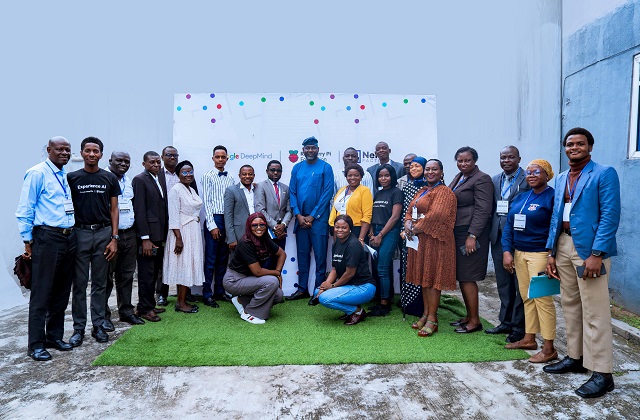The Experience AI program, launched in Nigeria in July 2025, marks a significant step toward integrating artificial intelligence (AI) education into the country’s secondary schools. This initiative, a collaboration between NerdzFactory, Google DeepMind, and the Raspberry Pi Foundation, aims to equip 157,000 students with foundational AI skills by December 2026, focusing on students aged 11-14. Funded by Google.org and supported by a ₦2.8 billion commitment from the Federal Ministry of Communications, Innovation & Digital Economy, the program targets five states—Lagos, Ogun, Oyo, Ondo, and Ekiti—with a strong emphasis on public schools, particularly in rural and underserved communities.
Program Details and Objectives
The program’s core objective is to train 3,150 secondary school teachers, who will then impact over 157,000 students, fostering AI literacy and skills. It seeks to shift Nigeria from being a consumer of technology to a creator of innovative solutions, empowering students to think critically about AI, understand its societal impact, and use it creatively to solve problems. This aligns with global efforts, as the program has already reached over 1.6 million students worldwide since April 2023.
Curriculum and Resources
Developed by the Raspberry Pi Foundation and Google DeepMind, the curriculum is designed to be accessible and practical, aligning with UNESCO’s AI competency framework. It includes:
– Free Lessons: Lesson plans, slide decks, worksheets, and videos for classroom use, focusing on relatable AI applications.
– Online Course: A 3-week free course on edX for educators, covering AI tools, their impact, and ethical considerations.
– Experience AI Challenge: An open-ended challenge for students to develop AI apps using trained machine learning models, with step-by-step guidance.
Implementation and Training Model
The training model is 70% online, utilizing live sessions and digital materials, and 30% in-person workshops, ensuring flexibility and reach. The program’s focus on public schools, especially in low-income and rural areas, aims to address educational disparities, though its success may depend on teacher readiness and community engagement.
Significance and Impact
The launch represents a shift from policy discussions to tangible implementation, addressing systemic challenges in AI education. Key stakeholders, including educators and organizers, emphasize its potential to build confidence, provide tools for creation, and instill a vision for leadership in AI. For instance, Motolani Falabi, Operations Lead at NerdzFactory, stated, “Let’s build a future where Nigerian children are not just consumers of technology, but creators, innovators, and global leaders in it.” Kat Leadbetter from the Raspberry Pi Foundation added, “The Experience AI programme is about empowering students to think critically, understand how AI impacts their lives, and use it creatively to solve problems that matter to them.” Veteran educator Solomon Ijishakin highlighted the need for teacher support, noting, “If we can give their teachers the tools and confidence to teach AI, we’re giving the students the permission to dream bigger.”
Detailed Metrics and Global Context
The program’s ambition is underscored by its metrics: it aims to train 3,150 teachers and reach 157,000 students within 18 months, joining a network of Experience AI partners in 24 countries, with one other in Nigeria. Globally, it has seen over 500,000 resource downloads by educators in 160+ countries, indicating its scalability and potential impact.
Challenges and Outlook
While the program holds promise, challenges such as ensuring equitable access, teacher training effectiveness, and sustained funding could influence outcomes. However, its alignment with national AI strategies, like the National AI Intelligence Strategy released earlier in 2025, suggests strong governmental support. The initiative could position Nigeria as a leader in AI innovation on the continent, fostering a generation ready for a technology-driven future.




